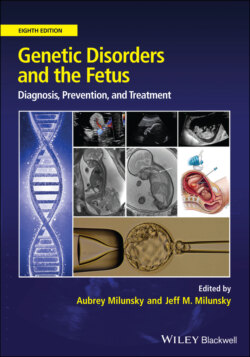Читать книгу Genetic Disorders and the Fetus - Группа авторов - Страница 32
Confidentiality and trust
ОглавлениеGenetic counseling and testing always reveals much more about the patient's health status and often reveals risk information applicable to other family members. Ethical codes of practice enunciated by the American Medical Association (AMA) Code of Medical Ethics,315 the American Society of Human Genetics,316 the National Society of Genetics Counselors,317 and the President's Commission for the study of Ethical Problems in Medicine318 have uniformly declared that it is impermissible to disclose confidential information without consent. While patient confidentiality was always thought of as inviolate, all315–318 recognize exceptional circumstances. However, the promulgation of the Health Insurance Portability and Accountability Act (HIPAA) Privacy Rule (2003)319 permits disclosures of health information if the individual to be warned is the subject of a threat of physical harm. This position harkens back to the infamous Tarasoff case in which an individual disclosed to his psychotherapist his intention to murder a former girlfriend who had spurned his affections.320
Much of the disclosure quandaries arise as a consequence of advances in the analysis of DNA. Relatives of a proband who is determined to be a carrier of a serious monogenic disorder or is actually affected, once informed, may be able to take life‐saving measures (e.g. long QT syndrome, colon cancer). For colorectal cancer there is evidence that over 50 percent of families at risk do not receive the necessary information.321, 322 Those in their reproductive years could choose options that include prenatal genetic diagnosis or preimplantation genetic testing. There are also relatives who exercise their right not to know, especially for degenerative neurological disorders for which no cure or effective therapy exists. Disclosure to third parties, other than relatives, also includes employers, insurance companies, and schools. It is hoped that the confidentiality of the physician–patient relationship and the patients' right to privacy and personal autonomy remain sacrosanct. The AMA has affirmed the importance of keeping genetic information confidential.315
Geneticists and genetic counselors may argue that they have no patient relationship with relatives in question. There is, however, a moral imperative to care. Practical issues inevitably supervene. If the patient is unwilling to transmit the information, the provider is stymied and cannot be expected to launch a search for the relative(s). Given the wide dispersal of families, frequently noted limited intrafamilial communication,323 caregivers are left with the requirement to indicate in writing the need and importance for the patient to transmit the vital information.
Next‐generation sequencing discovery of secondary findings applicable to the patient may also be of potential importance to close relatives (e.g. a mutation in BRCA1 or BRCA2). In noncohesive noncommunicating families (sadly common), all good intentions may then come to naught. Some have argued that providers may owe a duty of care to relatives,324 even though an international consensus holds that individuals have a moral obligation to communicate genetic information to their family members.325 In France, a law requires direct disclosure to relatives about genetic risks of any serious disease that can affect their health.326
However, faced with an intractable patient, some guidance about disclosure is reflected in a statement issued by the American Society of Human Genetics in 1998.316 When serious and foreseeable harm to at‐risk relatives can be anticipated, when the disorder is preventable or treatable, or when reduction of risk through monitoring is achievable, disclosure is seen to be permissible. “The harm that may result from failure to disclose should outweigh the harm that may result from disclosure.” In practice, few geneticists appear to have warned at‐risk relatives without patient consent. The vast majority of medical geneticists who decided not to warn such relatives were concerned by patient confidentiality issues and legal liability.327
